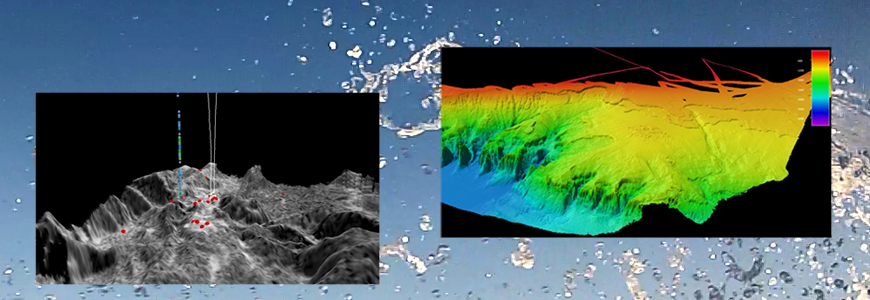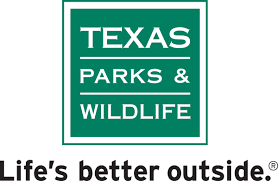Calendar
Interested in Urban Forestry? Come join Texas A&M AgriLife Extension, HAUFC and ISA-TX for a great day of education. Topics include: Emerald Ash Borer – Coming to a City Near You, Using Tree Growth Regulators to Reduce Pruning Costs, and Greening the Houston Region – Partnerships and Projects that Support the Urban Forest.
About this Event
The biomass in climax ecosystems such as forests, prairies and coastal wetlands cool our climate in three ways.
Leaves reflect more of the sunlight back into space than bare ground or concrete.
Plants sequester carbon. Most of that carbon goes underground as roots or sugars exuded to feed beneficial microbes. This massive soil life makes the soil spongy and better able to absorb water.
Plants create more rain. They transpire water and so recycle the rain. They put it back into the air and it rains again. As the plants pump it up into the air, the water vapor moves further inland. This supports inland forests which pump it yet further inland. 95% of planetary cooling is from hydrology and only 5% from carbon dioxide’s greenhouse effect.
Restoring land is low hanging fruit. Project Drawdown researched 22 ways folks are doing this. These include regenerative agriculture and multi-strata agroforestry. You can learn about these from Permaculture classes on www.urbanharvest.org
We could drawdown 30 gigatons of carbon per year according to Dr. Walter Jehne in Regenerate Earth. See also Www.GlobalCoolingEarth.org and Dr. Walter Jehne.
We need your help. Please eat organic. Please compost organic waste.
Duke University Press Description of Book:  “Based on fieldwork among state officials, NGOs, politicians, and activists in Costa Rica and Brazil, A Future History of Water traces the unspectacular work necessary to make water access a human right and a human right something different from a commodity. Andrea Ballestero shows how these ephemeral distinctions are made through four technolegal devices—formula, index, list and pact. She argues that what is at stake in these devices is not the making of a distinct future but what counts as the future in the first place. A Future History of Water is an ethnographically rich and conceptually charged journey into ant-filled water meters, fantastical water taxonomies, promises captured on slips of paper, and statistical maneuvers that dissolve the human of human rights. Ultimately, Ballestero demonstrates what happens when instead of trying to fix its meaning, we make water’s changing form the precondition of our analyses.”
Scientia Lecture Series featuring Caroline Masiello
Scientia Lecture Series on PANOPLY

Speakers:
- Laura Schaefer, Burton J. and Ann M. McMurtry Chair in Engineering, Professor, Department Chair
- Laurence Yeung, Assistant Professor, Earth, Environmental and Planetary Sciences
- Jim Elliott, Professor and Sociology Department Chair
Our environment is changing in myriad interconnected ways, with both short and long-term developments expected that will be felt differently in different communities and continents. We bring together three perspectives – from Engineering, Earth Sciences, and the Social Sciences – to illuminate not only the complex changes we are seeing today, but also the diversity of their impacts on society and of technological approaches being developed at Rice to address this most pressing challenge facing humanity.
A small reception will follow the event.
Come learn more about Houston Audubon’s work and how you can get involved! There will be an hour long presentation in the historic log cabin followed by a walk in the woods. This is the perfect opportunity if you’ve been wanting to do more for birds and the environment but aren’t sure how.
Dr. Karoline Mueller will speak.
“Restoring natural vegetation, such as forest, is currently the best option at scale for removing CO2 from the atmosphere, and must begin immediately to be effective within the required timescale of reaching net zero emissions by 2050. The livestock sector, having largely displaced natural carbon sinks, continues to occupy much of the land that must be restored.†(1)
“The scientific world is very aware of the intersection between food choices and their effects on both climate and human health. Michael Clark at the University of Oxford said: “Continuing to eat the way we do threatens societies, through chronic ill health and degradation of Earth’s climate, ecosystems and water resources.”
In this presentation, we will look at the way different food choices impact our planet negatively and why the same food choices also contribute to chronic illnesses that threaten societies through the high burden of personal suffering and staggering health care costs.
Although different groups give vastly different estimates of the effect of food choices on climate crisis, the very conservative number in the FAO report, Tackling Climate Change Through Livestock(2), comes to 14.5% of total greenhouse gas emissions. This roughly equals the number for all transportation contributions. Other estimates include future land usage changes that will provide additional carbon sinks and increase the positive effect drastically.
The 2015-2020 USDA Dietary Guidelines stated: “About half of all American adults—117 million individuals—have one or more preventable chronic diseases, many of which are related to poor quality eating patterns and physical inactivity.†While official publications(3) use the ‘reduce saturated fat’ as code for reducing animal products, many medical doctors and scientists send a clear message that choosing health-promoting vegetables, fruit, legumes, and whole grains, while omitting animal products, leads to good health outcomes.(4, 5)
Our choices can open the door to a win-win outcome.
For more information contact, Nan Hildreth at 713-504-9901 or NanHildreth@riseup.net
CELF Citizen Science: Inquiry to Action is a semester-long program that engages educators and students in project-based STEAM learning outside of the classroom. Tailored to each school and community location, we offer professional learning workshops for teachers paired with on-site support to implement a project-based learning module that  connects students to real-world challenges in their own neighborhoods. The program culminates in a Spring 2020 Student Symposium, bringing together all participating schools to present their findings and pollution-prevention plans to community members and real-world policy makers. The program combines the development of 21st century skills with the motivation and creativity generated by solving a problem in one’s own community.
Participants in the program will:
-
Implement a project-based STEAM learning unit.
-
Participate in professional learning workshops paired with on-site educator support.
-
Collect data with AirBeam monitoring technology combined with HabitatMap crowd-sourced data sharing platform.
-
Focus on air-quality while learning pedagogical principles that apply to a range of citizen science learning opportunities.
-
Engage with local concerns through student-led inquiry.
This opportunity is grant-funded. Join one of the workshops, connect with our educators for on-site support, and come together with other classes implementing this program at our 2020 Spring Student Symposium.
If you attend one of two professional development opportunities you can attain 2-hours of Continuing Professional Education credit, receive an air quality monitor, connect with local environmental partners, and enjoy a free lunch with fellow educators. You will also gain access to the 2020 Student Symposium, the culminating event for the program.
As part of its mission to train the next generation of ocean explorers, the NOAA Office of Ocean Exploration and Research hosts undergraduate and graduate students in the Explorer-in-Training program, where participants gain valuable experience in deepwater mapping and exploration. Applications for 2020 are currently being accepted through the University Corporation for Atmospheric Research. The application deadline is January 31, 2020. 2020 exploration will focus on the Atlantic Ocean, including the US Exclusive Economic Zone near Puerto Rico, the US Virgin Islands, and New England, the Mid Atlantic Ridge, and Atlantic Maritime Canada. Application for the Okeanos Explorer-In-Training Program 2020 Field Season (March-October can be found at: https://cpaess.ucar.edu/okeanos-application-2020. Applications for offshore opportunities are restricted to US citizens only. Onshore opportunities are not available this year.
2020 exploration will focus on the Atlantic Ocean, including the US Exclusive Economic Zone near Puerto Rico, the US Virgin Islands, and New England, the Mid Atlantic Ridge, and Atlantic Maritime Canada. Application for the Okeanos Explorer-In-Training Program 2020 Field Season (March-October can be found at: https://cpaess.ucar.edu/okeanos-application-2020. Applications for offshore opportunities are restricted to US citizens only. Onshore opportunities are not available this year.

Training and certification to conduct Texas Project WILD, Aquatic WILD, and Growing Up WILD workshops – prerequisite required
Share WILD with your peers and colleagues! Join the corps of volunteer Facilitators who lead the suite of Project WILD workshops. After attending this two-day workshop, participants may be certified to facilitate Project WILD, Aquatic WILD, and Growing Up WILD professional development workshops for formal and informal educators.
Must have previously attended a Project WILD or Aquatic WILD regular educator workshop and be willing to lead one workshop per year.
Receive 12 hours TEA-approved CPE hours.
Local and state officials are seasoned professionals in crisis response. Yet, the array of risks they face–cyber attacks, severe weather and domestic terrorism–are challenging the conventional wisdom of crisis management. Adapting to the new normal of disasters demands a renewed approach. At this event, Route Fifty will explore how Houston in the wake of repeat disasters is assessing its future risk, planning for the challenges ahead and renewing its spirit of resilience.
Confirmed Speakers:Â
- Marissa Aho, AICP, Chief Resilience Officer, Office of Mayor Sylvester Turner, City of Houston
- TaKasha L. Francis, Director, Department of Neighborhoods, City of Houston
- Michael Dailey, Chief, Outreach Programs Branch, Region VI, Cybersecurity and Infrastructure Security Agency)
- Alison Hare, MIA, Community Resilience Officer, Office of Public Health Preparedness & Response, Harris County Public Health
- Jeffry Evans, Meteorologist in Charge, National Weather Service, Houston/Galveston, TX
- Kyle Shelton, PhD, Deputy Director, Kinder Institute for Urban Research, Rice University